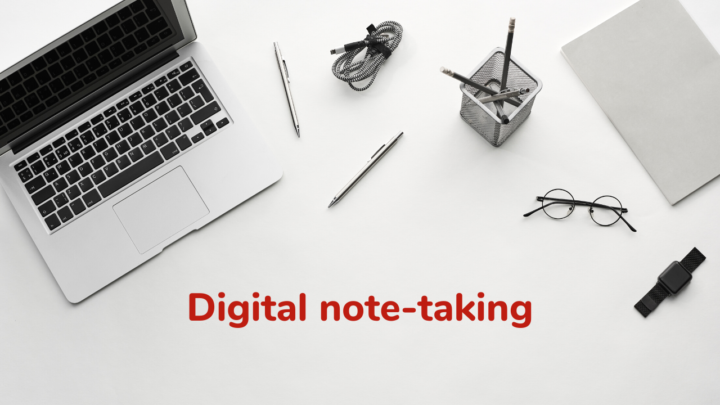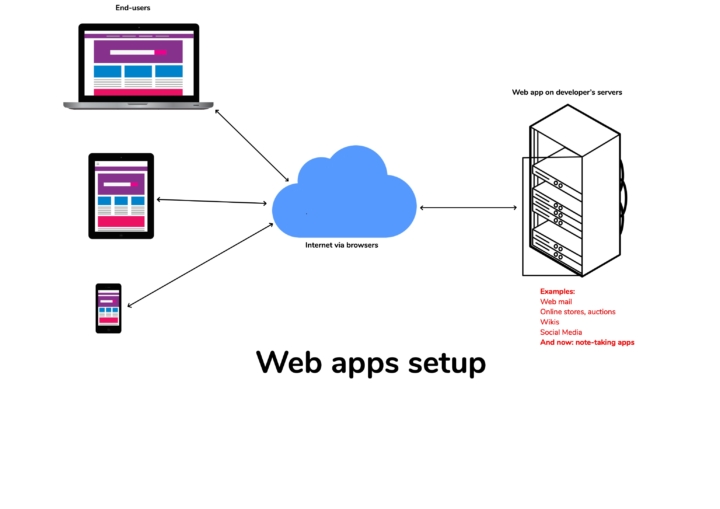
The modern world is teeming with distractions. From the constant notifications to the allure of social media, staying focused on the task at hand can feel like a lost battle. But it doesn’t have to; here are our top tips for staying productive and shutting out the noise.
Control your tech; don’t let it control you.
Notifications are great because they are designed to grab your attention and help us remember things. But, uncontrolled and unchecked, they can start to run our lives. You’ll find yourself checking that email, replying to that Instagram message, and reading that thread on X (formerly Twitter). Since not all notifications are necessary, you should be able to turn off unnecessary ones.
We recommend turning off notifications from social media as well as messaging apps. Yes, from Messages, WhatsApp, and Telegram—all of them. As a rule of thumb, when someone sends you a message, it’s not urgent. If it were, they would make actual calls, either voice or video ones. It could be a bit old-fashioned, but calls are an effective way of communicating during emergencies.
Imagine this: if you hurt your leg and needed help getting to the hospital, you’d definitely call someone while screeching in pain. But if you wanted to hang out in the evening sometime this week, you might leave a message so your buddy can respond when they see it. You might think to call for a second, but think, ’Naaaa, let me just text.’ It’s not an emergency. A message, no matter the app, simply says, ‘Reply when you see it’.
I have all my notifications on silent for all my devices, and I mute most friends and family, except for a few. Strangely, the few unmuted don’t communicate much, only when there’s something really important we need to do. Everyone is busy, right? Occasionally, I do have someone who is super active with messaging. You know that friend who can discuss a whole series via text? Yes, that one.
The truth is, that’s only possible when we are both free. So, we can choose to discuss that series over five hours in one sitting or over a month whenever we are free to read and reply to each other’s messages. Both scenarios work, as long as you set a pace for it. Fear not, turn off your notifications, and eliminate all that buzzing. It’ll free up a big chunk of your time.
With no distractions from my phone, I’ve been able to integrate it to my digital workflow. I can write complete articles on my phone without the temptation of messages, emails, or social media alerts. If you struggle with ignoring the apps, you can go a step further and use focusing apps like Structured and Focus that help you stay on a distraction-free screen on your phone. You then get warning alerts each time you try to exit the app. It can help you ignore the urge to check social media, especially. I have gone further to even turn off badge counts in all apps.
Plan your days and stick to the plan
Use a GTD app or PDF digital planner to plan your day in as much detail as you need. It is crucial. A good planner not only helps you allocate appropriate times to different tasks, it also tracks your accomplishments. You can schedule everything, including time for checking your emails and social media. It will ease the constant urge to peek through them.
When you have a schedule, you will then realise how much time you’re wasting. Our intentional digital planners are especially helpful with that. Once you have planned your day, week, or month, you have a notes section for each plan to evaluate how much you accomplished and why. It forces you to be intentional about how you’re spending your time. This will highlight habits you need to drop and those you must work on developing to help you become more productive.
Feeling overwhelmed is a focus killer. We thrive the more we achieve, and the best way to do that is through minimalism. Learn to create to-do lists and plans that prioritise your tasks. That is why our digital planners have such a minimalist approach to planning, because seeing your progress visually will motivate you to stay on track. At the end of the day, week, or month, you want to tick off as many items on your planner as possible.
I use the monthly intentional digital planner for planning my writing. That is the only aspect of my life I need to plan and track because for the most part, I have automated and simplified most of it. That said, for each month, I target to accomplish 3-6 goals and to-dos, in addition to all the writing I do each week.
After four months of using the planner, I check off at least 90% of my plans each month. Rescheduling and moving items to other months doesn’t feel like a failure when I have already accomplished so much. The notes section of the planner helps me analyse and evaluate why I failed to achieve the other few items. It makes me more proactive in my planning for the next few months. The more I plan, the better I become at planning what I can achieve.
Craft your ideal working environment
A messy desk translates to a messy mind, but keeping your workspace organised and free of distractions can also take up too much time if you repeatedly do it. Ideally, you’d want to clean your desk once a month and never have to do it again, right? But that’s impossible when you use paper and physical textbooks. After a single study or work session, chances are, the desk will be messy again.
For that, we recommend going paperless. Try to replace as much paper in your workflow as you can. Get a digital planner and stop using the paper one. Write your notes in a handwriting note-taking app, and use a PDF reader for your textbooks. Before you know it, you only have one tablet for all your work. Not only is your desk neater, but your bag is lighter too.
- WHY IPAD PRO — iPad Pro is the ultimate iPad experience, with the astonishing performance of the M2 chip, superfast Wi-F…
- IPADOS + APPS — iPadOS makes iPad more productive, intuitive, and versatile. With iPadOS, run multiple apps at once, use…
- FAST WI-FI AND 5G CELLULAR CONNECTIVITY — Wi-Fi 6E gives you fast wireless connections for quick transfers of photos, do…
Some people thrive in quiet solitude, while others find background noise stimulating. Experiment to identify your ideal work environment. You might even like both atmospheres for different reasons. I need complete silence when I am writing, early in the morning, so I can concentrate. As a remote freelancer, I also avoid working in the common family living spaces because conversations with my family are always exciting. So, I have set up a dedicated office where I can lock out everyone to completely focus on my work.
Sometimes, towards the end of the day, when I need to pull a few extra hours, I might play some music to boost my energy levels a bit. Music helps me stay focused when I am tired but have a looming deadline. Otherwise, in the morning, when I am still full of energy, music is just a distraction. You’ll find me singing along and dancing with all that morning energy. What’s important is knowing what works for you, when, how, and why. The best way to find out is to simply try it and evaluate the results.
Libraries, cafes with low ambient noise, or even dedicated co-working spaces can be good places to work. They can motivate you when you see others working and focusing on their work. Besides, the environment in those places is very different from anywhere else. Collective focus can be a strong driving productivity force. We are creatures of copied patterns.
If you go to a party, you just want to blend in and have fun. The same applies with libraries and co-working spaces; you want to be productive like everyone else. At the library, no one wants to chit chat, and that alone will mean you don’t have any distractions. Also, the fact that you left the house (leaving all the distractions) will leave you with only your work or study to focus on. Whereas at home you might think of catching up on a series, there is no Netflix in a library, cafe, or co-working space. You can only work on your device, by your lonesome!
Mastering your mind
The pomodoro technique is a time management method that involves working in 25-minute intervals with short breaks in between. There are many free pomodoro timer apps available that can guide you through the cycles. A simple stop watch or timer on your phone can also do the job. The goal is to build the habit of distraction-free focus and eventually become able to focus longer with little to no assistance.
Positive reinforcement goes a long way. Set rewards at the end of the day’s work for completing focused work sessions. This could be going out with your loved ones, scrolling through social media, watching a movie; whatever you enjoy doing. We recommend doing this at the end of the day, to avoid distractions during your work session.
You must learn to discipline your mind to focus throughout the day. So, during your pomodoro five-minute breaks, it’s better to get up from your desk to stretch a little. Go to the loo, get a snack even, or anything that relaxes your mind a bit from focusing on your work for that short time. But whatever activity you choose should not completely remove your mind from your work.
That means you can’t scroll through social media because that will be distracting. It will set your mind completely off the work track and on a different path. It will take too much effort to pivot back. Ever gone for a fun break, where you’ll need ten to twenty minutes to get back in the work or study mood? Try to avoid distractions during your breaks too, especially when they are only five minutes. Instead, plan your favourite hobbies for the evening at the end of the day.
Remember that you can do what you love because you have focused all day and achieved plenty, and you deserve the break. Just like during your working hours, in your downtime, avoid thinking about work or studying. Master your mind to be in the moment. If you’re working, work. When you are out with friends, enjoy it and don’t distract yourself with work. That way, you can build both healthier relationships and a successful career.
My family knows that when I am working, I don’t respond much unless there is an emergency, of course. Trying to strike up a conversation with me while writing is futile. You’ll probably only get vague sounds out of me, with no engagement whatsoever. When work is over, I completely shut out all work and focus on having fun. It could be for the weekend or a few hours before bedtime.
I am always trying to be fully present to hear what my mom’s doing on the farm, my dad’s new conspiracy theory or the latest feud in my brothers’ complicated relationships. At some point, I made a pact with myself to be everything I was meant to be: a daughter, sister, wife, mother, and still pursue my dreams. The only way I succeed is by focusing on the task at hand. It doesn’t have to be for the whole day, even if it’s thirty minutes. I make sure it is thirty minutes of active, full participation on my part, every single time!
Goal: zero distractions
Don’t beat yourself up if you get distracted, though. Acknowledge it, gently refocus your attention on the task, and move forward. The goal is keep trying and to improve yourself to become unfazed by all kinds of distractions. That’s not to say the distractions will ever disappear; you simply become very good at ignoring them. If at first you don’t succeed, try, try, try again.





